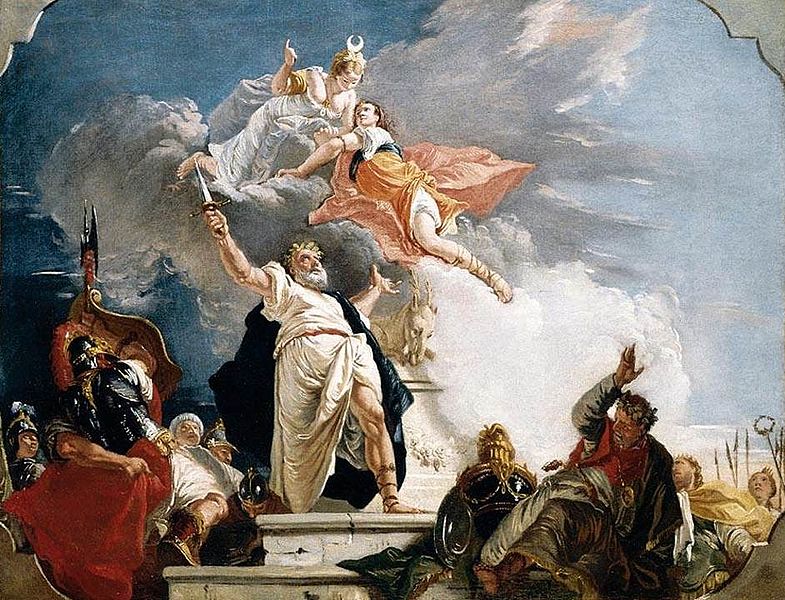Iphigenia
The young Princess that Sacrificed to Fulfill the Wishes of the Gods and Her Father

Iphigenia was the daughter of Agamemnon and Clytemnestra, and the sister of Orestes and Electra. Agamemnon was the king of Mycenae, brother to Menelaus, and son of Atreus. The royal house of Atreus was cursed due to the actions of Atreus' father Pelops and grandfather Tantalus, bringing much misfortune.
According to myth, Iphigenia was offered as a sacrifice by her own father. After Helen's abduction by Paris, the prince of Troy, the Achaean fleet and army gathered at Aulis to launch their attack on Troy. Agamemnon, being Helen's brother-in-law, took the role of commander-in-chief. However, for a long time, the ships were stuck in the harbor because the goddess Artemis was preventing the winds from blowing towards Troy. The goddess of the hunt was angry with Agamemnon.
According to the myth, Agamemnon had killed Artemis' sacred deer and boasted of being the best hunter. Some variations of the myth say that Agamemnon sacrificed the most beautiful creature to the goddess every year, but the year Iphigenia was born, she was the most beautiful, and so her father was forced to offer her. Another version mentions that Agamemnon's father, Atreus, had promised Artemis the best animals from his flocks but later concealed a golden lamb from her.
Regardless of the reason, the seer Calchas informed Agamemnon that the only way to appease the angry Artemis was to sacrifice his daughter. Thus, Agamemnon sent a message to Queen Clytemnestra to bring Iphigenia to Aulis, pretending she was to be wed to the fearless Achilles. Iphigenia and Clytemnestra were deceived and came to the Achaean harbor where Agamemnon prepared his daughter for the sacrifice conducted by Calchas. The wind blew favorably, and the ships set sail for Troy. However, Artemis did not allow the sacrifice to be completed and saved the girl at the last moment, leaving a deer in her place.

Subsequently, Iphigenia became a priestess in the land of the Taurians, located in the region of Crimea on the Black Sea. Euripides' tragedy, "Iphigenia in Tauris," narrates the next phase of the story after the sacrifice at Aulis. The inhabitants of the Taurian kingdom followed a strict practice and demanded the sacrifice of all foreigners who shipwrecked there. The plot begins when Iphigenia, now a priestess of Artemis, meets two Greek castaways, one of whom is revealed to be her brother, Orestes.
Upon discovering the truth just before their execution, Iphigenia devises an escape plan for them to return together to Greece, taking with them the wooden statue of Artemis. The play concludes with the appearance of the goddess Athena/Minerva, who orders Iphigenia to become a priestess of Artemis in her temple at Brauron in Attica. Artemis no longer demands human sacrifice, and it suffices for a symbolic drop of blood to be spilled in her shrine at Aulis by Orestes, who founded a temple in her honor.
